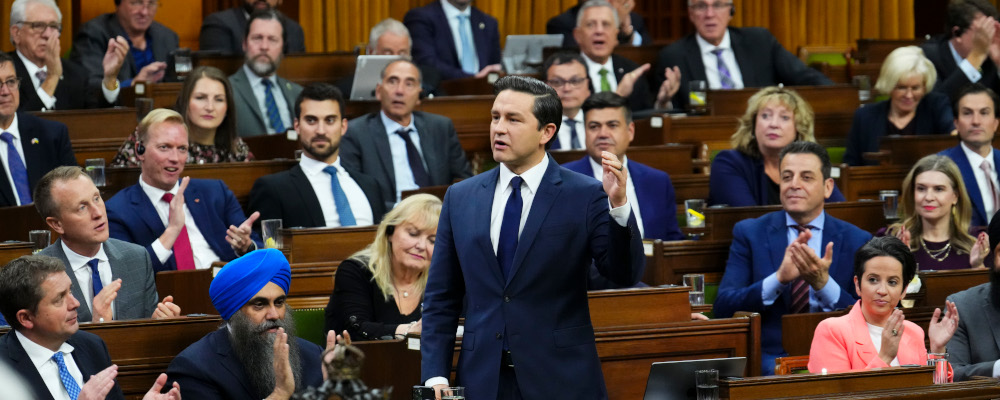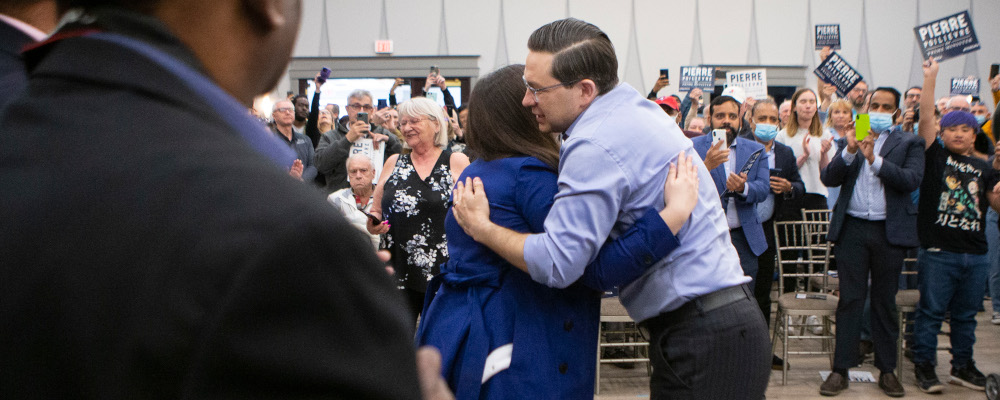Late last month, the public learned that the Toronto District School Board (TDSB) through its Equity, Anti-Racism & Anti-Oppression Department issued a teaching guide claiming the Canadian education system is “colonialist” and designed to uphold the dominant white culture. The document, entitled “Facilitating Critical Conversations,” specifies that “education is a colonial structure that centres whiteness and Eurocentricity and therefore it must be actively decolonized,” and “schooling in North America is inherently designed for the benefit of the dominant culture (i.e., white, middle-upper class, male, Christian, cisgender, heterosexual, able-bodied, neurotypical, etc.)”. It adds that, “race matters—it is a visible and dominant identity factor determining people’s social, political, economic, and cultural experiences.”
While the school board has since temporarily removed the guide pending review after the Ontario Ministry of Education called it divisive, it is important that this thinking which has captured our school systems not be ignored.
That this handbook was actually produced and distributed by the TDSB did not come as a shock to me, because, in my view, it is representative of what is taking place at other school boards right across Ontario. A reasonable question to ask is how all of this came about.

Having served as a trustee for 24 years, I would suggest it emerged because of the work of frontline activists who truly believe in their cause and that the system is stacked against racialized students. However, many others in leadership positions, who have other motives, simply see this as an opportunity to enrich themselves. They did this by pretending to address the activists’ perception of the issues.
As a Black trustee and past chair of a large school board (WRDSB), I often wondered what good could come from paying DEI consultants upwards of $500.00 an hour to teach kids that if they are white the successes they experience are not due to personal effort. Meanwhile, racialized students are being taught that despite personal effort, their chances of success are diminished because society is racist and therefore biased against them.
The fact is that we have both white and racialized kids who are doing well academically. Conversely, we have white and racialized kids who are not doing so well. What I have found as a member of my board’s discipline committee is that the kids (from all backgrounds) who are not doing well usually have other issues that are at play, including, but not limited to significant behavioural issues that are impacting their ability to learn. However, you can’t tell this to the proponents of DEI, who have been busy organizing events to celebrate and take credit for the academic success of racialized students who I believe were, for the most part, never in danger of failing school in the first place. The credit should go to the parents and caregivers who worked and continue to work hard to encourage and support their children.
Thankfully, with the passing of each day, more and more people are beginning to question the need for school initiatives that are fixated on identity politics. They are coming to realize that certain aspects of DEI instruction can actually lead to greater prejudice and even harm, as highlighted in a recent study released by the Aristotle Foundation and authored by Professor David Haskell.
Haskell’s report shows that DEI related to “anti-racism” education and its promotion of “white privilege” doesn’t make participants more sympathetic to disadvantaged Black people as DEI trainers claim, and can in fact make them more hostile toward poor white people.
As he elaborates, “Teaching students about white privilege, a core component of the DEI curriculum, does not make them feel more compassion toward poor people of colour but can reduce sympathy [and] increase blame…for White people struggling with poverty.”
In light of Haskell’s overwhelming evidence, I feel school boards should be required to justify the expense and existence of DEI in their organizations. Moreover, if it is doing harm as his research shows, do we not have an obligation to use legislation to stop the practice immediately in our classrooms?
I would say we do. And, that is why I agree wholeheartedly with parent Liz Galvin who recently told the Halton District School Board: “Trustees, when your equity and inclusion policies are used to generate administrative procedures by un-elected DEI proponents that contradict the aims and prescribed goals of said policy, then you have an obligation to insist that they be scrutinized, amended and or removed.”
It seems straightforward, but the practice will not stop if it is left solely to the discretion of the Ontario NDP supporting majority which dominates most school boards.
This is where the Progressive Conservative government of Premier Doug Ford comes in. Even though his government has made it clear through their 2023 Better Schools and Student Outcomes Act (Bill 98) that they want boards to be dead focused on tangible measurable learning achievement, rather than on faddish so-called “social justice” experiments, boards continue to double down on these DEI initiatives. I don’t know if the government is tiptoeing around the issue out of fear that the far-Left radicals entrenched in our education system will attack them. More and more parents and education workers from all backgrounds across our province are paying closer and closer attention to the damage being done. It is time for the Ford government to respond firmly and issue clear directives to boards to end these divisive practices.
Recommended for You

Ginny Roth: J.D. Vance, Pierre Poilievre, and how they slice their economic pie

David Polansky: As President Biden leaves the race, will the Democratic Party hodgepodge hold?

RCMP spending to protect MPs may have risen 112% since 2018, as Canadian politicians face greater rise in threats

Trevor Tombe: Canadians are paying billions in hidden taxes on new homes











